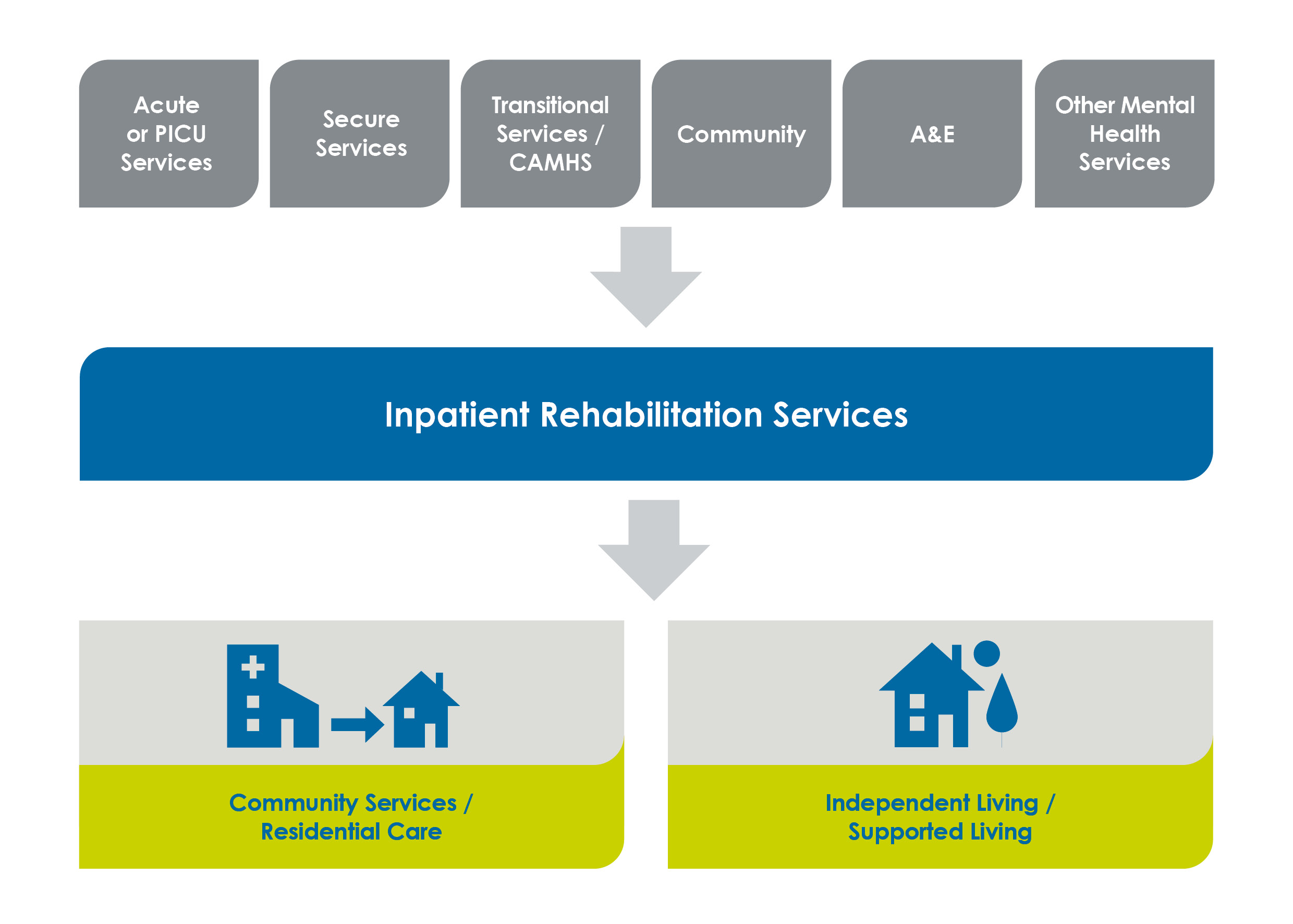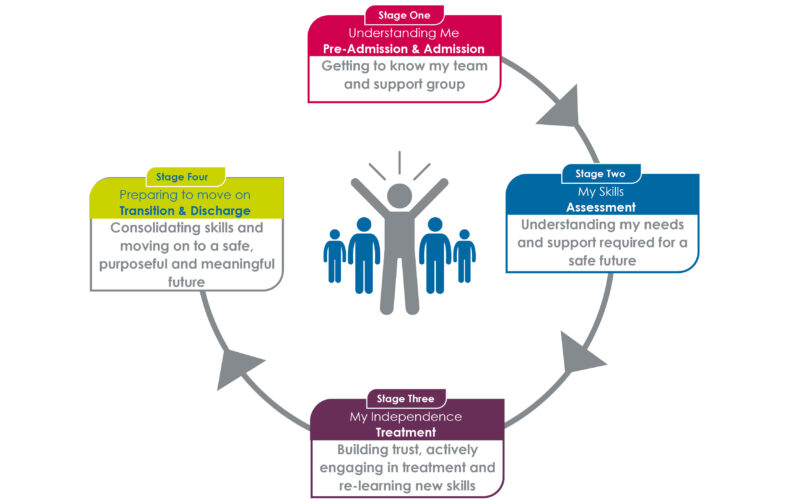Each of our facilities is designed with wellness in mind, and we work collaboratively to ensure individuals access the right care at the right time. We deliver personalised care, focused on achieving the best outcomes. All those in our care have a bespoke plan to guide their journey toward greater independence and a return to the community, wherever possible.

The benefits of our care pathways
We ensure the people we support can:
- Experience continuous support: Receive consistent care throughout their entire pathway.
- Advance to the right setting: Seamlessly transition to the next step that best fits their needs.
- Navigate with confidence: Benefit from carefully planned transitions where key staff are introduced early to build trust and rapport.
- Thrive in tailored environments: Choose from single-occupancy inpatient support, residential, or supported living options, all designed around their unique requirements.
- Shape their own future: Actively participate in their care and support plans through our co-production approach.
Our approach
Our approach emphasises person-centred care that allows for greater choice and control, according to each individual’s needs.
We work in partnership to improve the nation’s mental health and are proud to be part of a system that provides continuous, accessible and integrated care.
Our expert and highly dedicated healthcare teams empower individuals in hospital, residential, supported living and day services to consistently make a positive difference to their lives.
- Personalised, high-quality care delivered as close to home as possible.
- Evidence-based treatment with proven outcomes and results.
- Service user involvement and collaboration with families and caregivers.
- Individual choice and control, ensuring individuals are active participants in their care.
